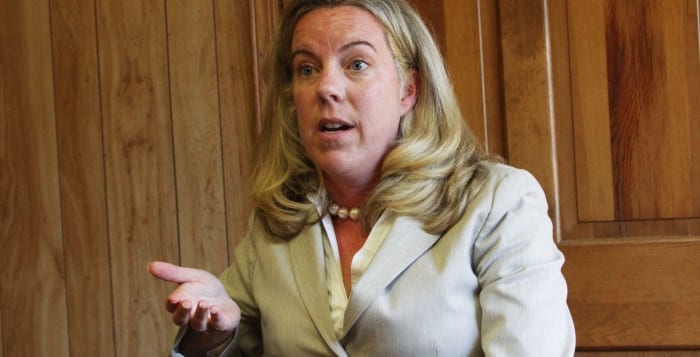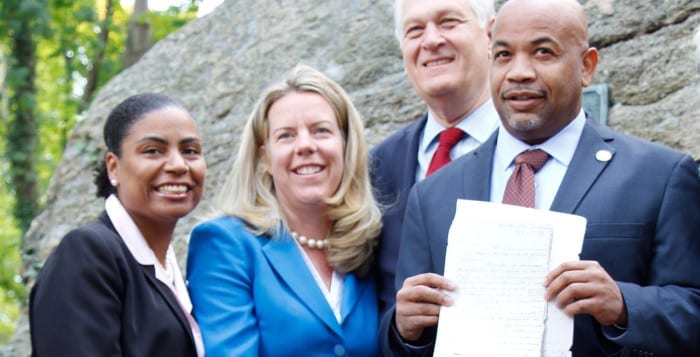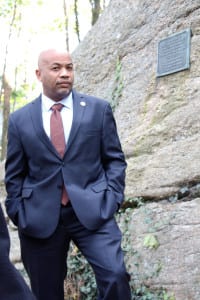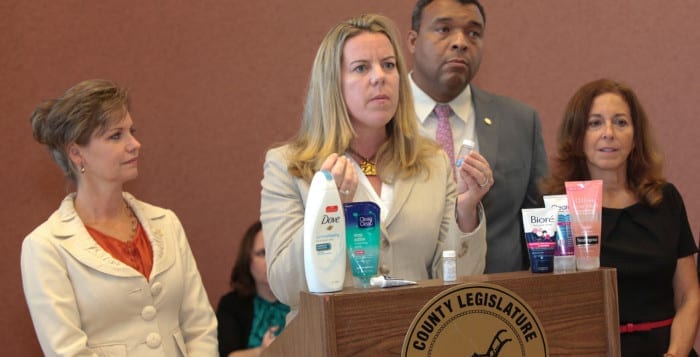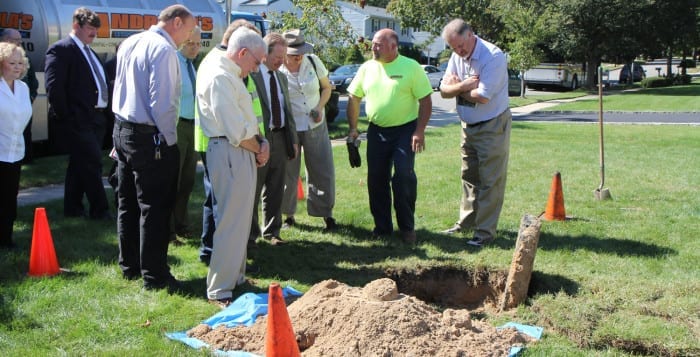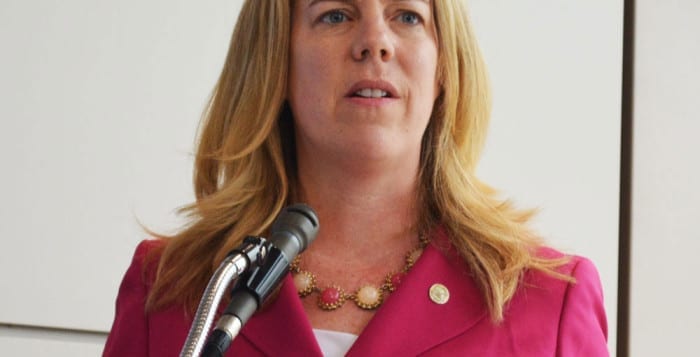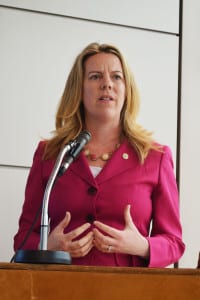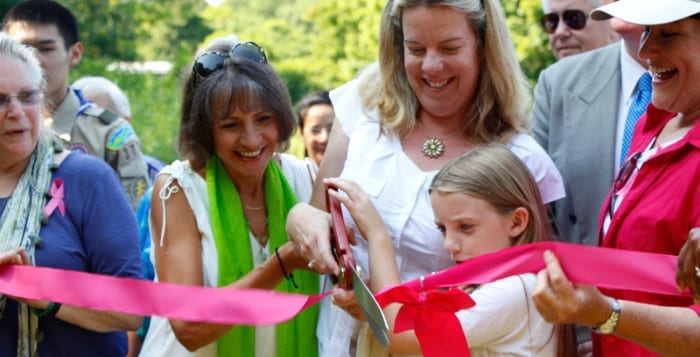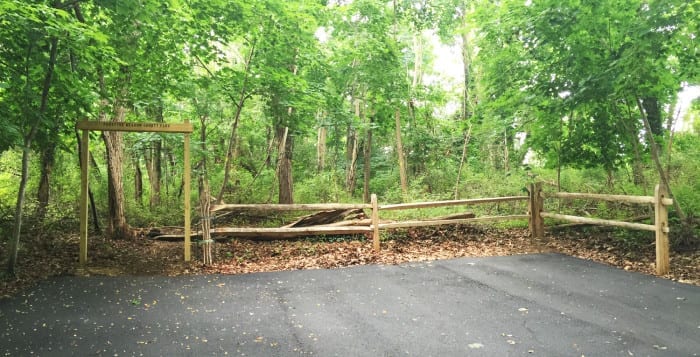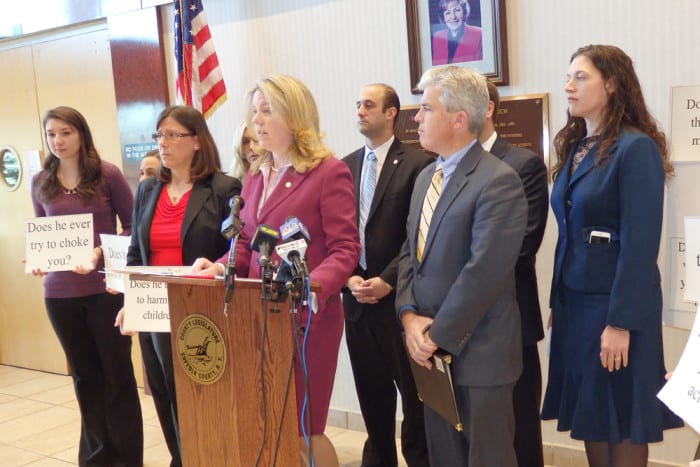By Elana Glowatz
Suffolk County Legislator Kara Hahn said she wants a third term in office to continue working on protecting public health, while Republican challenger Donna Cumella said she wants to focus on Suffolk County’s finances.

Hahn (D-Setauket) has spent much of her two terms in the 5th Legislative District on environmental and public safety issues, crafting a bill that put Narcan, an antidote for opioid overdoses, into the hands of first responders and another that set the gears into motion to ban tiny plastic pellets called microbeads that pollute our water supply, among others. But in a recent debate at the Times Beacon Record Newspapers office, Cumella said while that work is important, the county’s fiscal state is a more pressing issue.
The challenger, a Port Jefferson Station resident, said county officials, in crafting budgets, habitually overstate county revenues and understate expenses, creating a serious deficit.
“Projections far exceeded what the reality was,” she said, referring specifically to county estimates on sales tax revenue.
She said borrowing is “out of control” and called for a smaller government.
But Hahn fought the idea that the county is spiraling.
“Our debt burden is manageable,” she said, adding that Suffolk tends to pay off its debt quickly and legislators always look for ways to decrease borrowing. About the size of government, she noted that the county has been reduced by about 1,200 positions in the last few years.
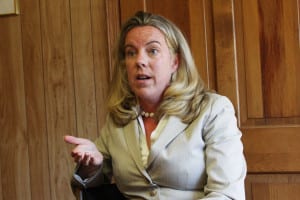
The incumbent also said that a certain amount of debt is unavoidable, because “you can’t pay cash for everything.”
Cumella and Hahn agreed that neighborhood revitalization is important. The Republican emphasized that the county could get help from state and federal grants to push along the projects. The Democrat stressed that the county needs to grow its number of high-paying jobs and said she has an idea to boost the economy by training workers for technology-based positions at Suffolk County Community College.
There were not many other similarities between the two women. One of the ways the candidates stood apart was on their methods for improving the county’s cash flow. Cumella said the county should be sharing more services with other municipalities, specifically local towns, and Hahn said she has been holding meetings on finding new revenue streams, such as penalizing polluters like those who use certain fertilizers on their lawns.
The legislator is looking for another term because she is “deeply committed to making a difference” and there is still work to be done. She has been working on initiatives to raise awareness of chemicals used in dry cleaning, affecting water quality and public health; to make it easier for people to safely get rid of leftover prescription medication; and to change the way the county addresses domestic violence and its victims.
Cumella, on the other hand, spoke against partisanship in the Legislature and said getting the county’s finances in order will help keep young people on Long Island.
“We need to keep our families together,” she said.

